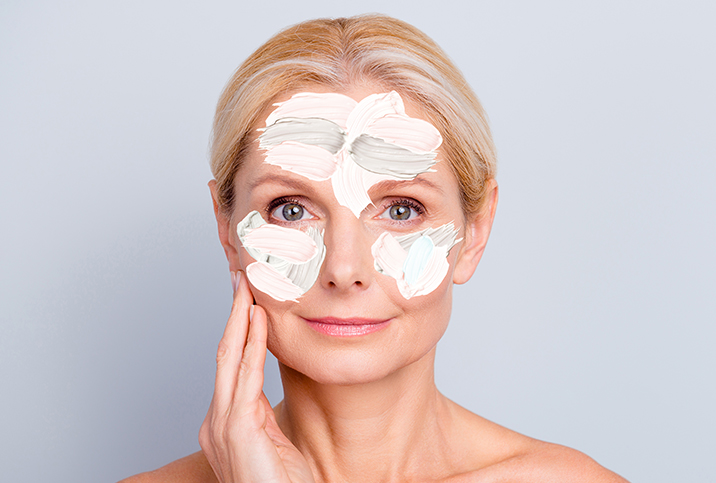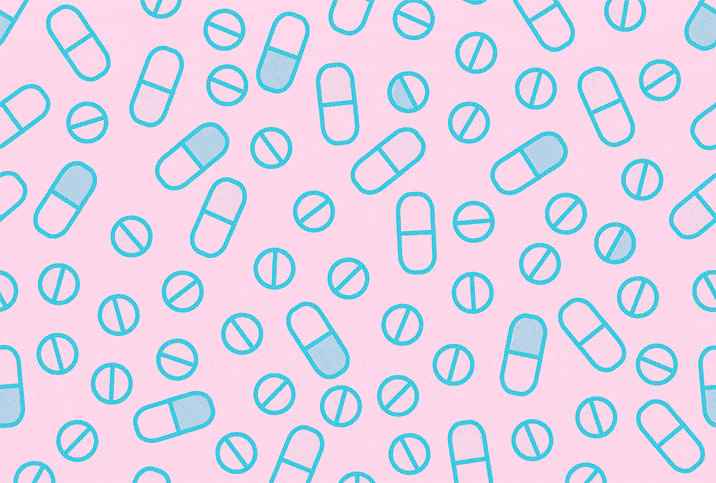Collagen Peptides: Hope or Hype?

Who wouldn't want to reverse the signs of aging if the only requirement was stirring a scoop of powder into your smoothie every morning? Well, this is the idea some beauty influencers and brands exclaim of various collagen peptide products.
But collagen supplements aren't just making headway on social media. On a global scale, the market for collagen supplements is skyrocketing, appearing in topicals, foods and drinks. The global market is estimated to be about $631 million and is expected to increase to $828 million by 2026.
What are collagen peptides?
When whole collagen proteins are broken down into smaller pieces, they are known as collagen peptides.
Collagen is one of the most abundant proteins found in the human body, comprising 25 percent of our body's dry mass and 75 percent of our connective tissue. The springy, fibrous substance is an integral component of bones, tendons, cartilage, gut lining and cushioning along the vertebrae. Collagen also acts as the scaffolding maintaining the skin's firm structure and elasticity, as well as the pliability of your cartilage, tendons and blood vessels.
There are as many as 28 different types of collagen in our body.
"We begin to lose about 1 percent of our collagen per year in our 20s and as much as 30 percent in the first five years of menopause," said Prakash Acharya, M.D. (no relation to the author), a dermatologist and managing director at Reva Skin & Hair Clinic in Kathmandu, Nepal. "Your collagen level can also plummet if you incorporate smoking, excess alcohol, sleep deprivation and excess sun exposure into your lifestyle."
Collagen also acts as the scaffolding maintaining the skin's firm structure and elasticity, as well as the pliability of your cartilage, tendons and blood vessels.
There is evidence dating back to the 2nd century C.E. that Chinese medical practitioners recommended ejiao, a gelatin derived from donkey hide and an early peptide used to promote general health. However, in the 1960s, scientist Paul Börnstein, M.D., a pioneer of matrix biology and pathology, developed an extraction-based method for obtaining collagen. His research failed to produce biologically active collagen, but the research helped lead Polish scientists in the 1980s to extract collagen from fish to develop a collagen peptide that was biologically active and similar to the collagen in the body.
Nearly 40 years on, collagen peptides are now a top-selling supplement and included in many daily skincare regimens. These supplements are marketed as collagen peptides or collagen hydrolysate and can be from any source, marine or vegan. When you consume collagen supplements in the form of hydrolyzed collagen, your gut breaks it down into key components—the amino acids representing the building blocks of protein—to replenish some of the collagen supply your body has lost over the years.
Collagen as a supplement
Collagen peptide supplements have become popular, in part, because of celebrity endorsements from the likes of Jennifer Aniston, Drew Barrymore, Lady Gaga and the Kardashians, to name a few.
However, their efficacy is controversial because some research has been fully or partially funded by related industries with potential conflicts of interest since they'd reap the benefits from a positive study.
A systematic review published in the Journal of Drugs in Dermatology compiled 11 studies, observing a total of 805 patients, to look at the dermatological applications of collagen in three different formulations: collagen hydrolysate, collagen dipeptide and collagen tripeptide. In two of the studies, the use of collagen tripeptide, specifically, 3 grams per day for four to 12 weeks, showed notable improvement in skin elasticity and hydration.
'I would stress to patients that if they want skin benefits, I would certainly suggest them to try pig or fish sources rather than a bovine source from cows.'
"Collagen peptides do fill a gap in the modern-day diet and it's good to include collagen in your diet if your diet is less in protein," said Nizam Shah, M.D., who practices in Bangalore, India, and serves as the head of the physiology department at Dayananda Sagar College of Dental Sciences. "But if you have a history of kidney stones, you might want to steer clear from it or talk to your doctor for guidance."
Increased collagen in the vagina can strengthen vaginal walls and increase glycogen, but this is generally achieved through a laser procedure and not through the ingestion of oral supplements. Collagen can also be used to strengthen the muscles surrounding the urethra to reduce incontinence, but again, this is done with a periurethral injection and not oral supplements.
A study published in 2014 in the Journal of the Science of Food and Agriculture indicated collagen may work as a therapeutic, nutritional oral supplement for osteoarthritis, or joint pain typically seen in middle age onward. In 2019, a meta-analysis published in International Orthopaedics also looked at how oral collagen supplements could ease osteoarthritis symptoms. The analysis indicated significant improvement in joint stiffness but displayed no significant improvement for subjects using a more detailed pain assessment, and no significant improvement in functional limitations in patients with osteoarthritis when compared to a placebo.
Embracing a collagen-rich diet
When food was scarce, humans incorporated every conceivable part of an animal into their diet. They routinely included foods such as pig's feet, fish cartilage and every offcut of beef we'd turn our nose up to nowadays. All those ingredients would have been naturally teeming with collagen.
Ilham Malick, M.Sc., a dietitian based in the San Francisco Bay area, recommended foods such as bone broth, fish with the skin on and small fish with soft bones as natural alternatives for collagen peptides supplements, as collagen in food is more bioavailable and better absorbed.
"I would stress to patients that if they want skin benefits, I would certainly suggest them to try pig or fish sources rather than a bovine source from cows," Acharya noted. "[Bovine collagen] has not been studied, so I can't comment whether collagen peptides from bovine sources provide the same benefits."
There is a potential risk of prion disease (bovine spongiform encephalopathy or "mad cow disease") when ingesting bovine collagen from cows.
Embracing a collagen-rich diet can be a game-changer as an alternative to depending on collagen supplements.
We know collagen supplements are mostly safe, but some people may experience mild digestive symptoms. Before you make any significant changes to your daily diet, get advice from your healthcare provider.
Editor's note: These statements have not been evaluated by the Food and Drug Administration. Our medical experts advise that you consult with your primary healthcare provider before you begin using a supplement. This information is not intended to diagnose, treat, cure or prevent disease.


















